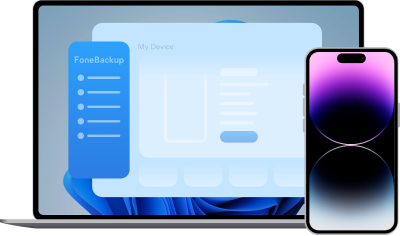How to Restore iPhone to Previous Backup with iCloud/iTunes
This guide will show you how to restore iPhone to previous backup, including the method to selectively restore iPhone backup.
Can you restore iPhone to previous backup?
Yes, you can! As long as you have backed up your iPhone before, then you can reset iPhone to previous backup.
Apple offers 2 backup ways for you to choose from. You can use iTunes/Finder to backup iPhone on your computer, or use iCloud to backup iPhone to the cloud server. When you accidentally lose data or encounter problems, you can restore a backup to get back important files or get your iPhone back to normal.
Depending on the backup method, the recovery method is also different. Here in this guide, we will tell you all the details about how to restore iPhone to previous backup. Just navigate to the corresponding section to get started!
Restore iPhone to previous iCloud backup
Many iPhone users choose to backup iPhone to iCloud. After all, it is easy to operate. You can tap the Back Up Now option to create a backup immediately. Besides that, you can turn on automatic backup to save energy. Let’s start to see how to restore iPhone to previous backup using iCloud.
- ★Tips:
- To restore iPhone to previous iCloud backup, you will need to reset iPhone first. You can only restore iCloud backup during the setup process, which means you will lose the existing data on the device.
- To ensure a smooth restoration, please connect your iPhone to stable Wi-Fi. iCloud relies on Wi-Fi to download the backup. If the Wi-Fi is poor, then recovery will take a long time and may even get stuck.
- To ensure that there is a backup available, you can go to Settings > [your name] > iCloud > iCloud Backup to check. You can choose your device > tap Show All Apps to delete the files that you do not want to restore to iPhone.
Step 1. Go to Settings > General > Reset (Transfer or Reset iPhone > Reset in iOS 15 and later) > Tap Erase All Content and Settings > Enter your passcode to confirm.
Step 2. When the iPhone restarts, follow the on-screen instructions to set up your iPhone until you see the Apps & Data screen.
Step 3. Choose Restore from iCloud Backup.
Step 4. Enter your Apple ID and passcode > Choose the right backup according to date and backup size.
Step 5. If asked, sign in with your Apple ID to restore purchases and apps.
After that, your iPhone will start to download iCloud backup. Please stay connected to Wi-Fi until the process is complete. The whole process to restore iPhone to previous iCloud backup can take a few minutes to an hour. The more data that needs to be recovered, the longer it will take.
When the recovery is done, go ahead and complete the setup and then you can use your device. It will continue to download apps, photos, music, etc. in the background. You can keep your Wi-Fi connection to complete these downloads as soon as possible.
Quick fixes to restore iCloud backup not working:
- Check if you have enough storage space to load the backup
- Check your Internet connection
- Force restart your iPhone
- Update iOS to the latest version
Restore iPhone to previous backup on PC
iCloud only offers 5GB of free storage space, which may not be enough to backup all your content. Therefore, you choose to backup iPhone on Windows PC and want to restore iPhone to previous backup using iTunes. Like iCloud, iTunes will delete all existing data on the device. Before you start, there are some points you need to be aware of.
- ★Tips:
- Update iTunes to the latest version to avoid any potential errors. Go to Microsoft Store to get the latest version. Or click the Help tab in iTunes and select Check for Updates.
- If you want to backup your current data, you can go to Edit > Preferences > Devices, right-click the backup you want to restore > choose Archive. In this way, the backup will not be overwritten by the new one.
Let’s start to see how to restore previous iPhone backup with iTunes.
Step 1. Open iTunes > Connect your iPhone to computer via the USB cable.
Step 2. After iTunes detects your device, click the Device icon.
Step 3. Go to Summary > In the Backups section, click Restore Backup.
Step 4. Select the backup you want to restore from the list > Click Restore > Enter the encryption password when asked.
Please keep your iPhone connected until the process is finished.
How to selectively restore iPhone backup
As you can see, when you want to reset iPhone to previous backup, you have no choice but to restore the entire backup. What’s worse, it will erase all existing data on the device. If you want to selectively restore iPhone backup in the future, you can use a third-party backup tool to help you.
FooTool is one professional iPhone data management tool for Windows PC. With AOMEI FoneBackup, you can restore the files you need without resetting iPhone.
? It offers Selective Backup and Full Backup to help you backup iPhone in different situations.
? You can take control of your backups. View the backup files and delete the unwanted ones.
? It allows you to select the files you want to restore without having to restore the entire backup every time.
? There is no need to reset iPhone before the backup and it will not erase any existing data on your device.
?The backup can be restored to any iPhone, which means you can restore the backup to another iPhone with a different Apple ID.
AOMEI FoneBackup supports iPhone models from iPhone 4 to the latest iPhone 14. You can click the download button to get AOMEI FoneBackup and backup your important data.
- Launch FoneToo > Plug in your iPhone.
- On the home interface, choose Phone Backup > Go to Selective Backup or Full Backup. Here we choose Selective Backup.
- Select the files you want to backup > Click OK to continue.
- Change the storage path > Finally, click Start Backup.
You can backup iPhone to computer, USB flash drive and external hard drive.
- When you want to restore the backup, go to Backup History.
- Click the Restore icon.
- Preview and select the files you need and click Start Restore.
AOMEI FoneBackup also supports data transfer between iPhone and computer. You can go to Phone Transfer and choose iPhone to PC to copy files from iPhone to PC. It is able to transfer both purchased and non-purchased items.
Restore iPhone to previous backup on Mac
On a Mac with macOS Mojave or earlier, users can backup iPhone with iTunes. On a Mac with macOS Catalina or later, users can backup iPhone with Finder. Although the applications used are different, the steps are almost the same. Below are the steps to restore iPhone to previous backup on Mac.
Step 1. Connect your iPhone to Mac via the USB cable.
Step 2. Open iTunes or Finder according to the system you are using.
Step 3. In Finder, choose your iPhone and click Restore Backup... > In iTunes, go to Summary and choose Restore Backup.
Step 4. Choose your backup from the list > Enter passcode if asked > Click Restore to start.
Please do not unplug your iPhone until it restarts and finishes syncing.
Can’t find lost files from backup?
After reading the above section, you already know how to restore previous backups on your iPhone. However, what if you still cannot find the lost files? What else can you do when the backup does not contain the files you need?
Well, in this case, you can use a data recovery tool to help you find the lost files. MyRecover for iOS is recommended here. This tool will deeply scan your iPhone to find all lost and deleted files. After scanning, you can preview and select the files you want to restore.
If there is no backup available, the backup does not contain the files you need and you don't want to reset the device, then using a data recovery tool is a good option.
Final words
That’s all about how to restore iPhone to previous backup. If you have backed up iPhone to iCloud, you can reset your iPhone and choose Restore from iCloud Backup option to get the previous backup. If you have backed up iPhone to computer, simply plug in your iPhone and choose Restore Backup in iTunes/Finder.
Whether you use iCloud, iTunes or Finder, you can only restore your entire backup. If you want selective restore, you can try AOMEI FoneBackup, which lets you easily manage backup files.

